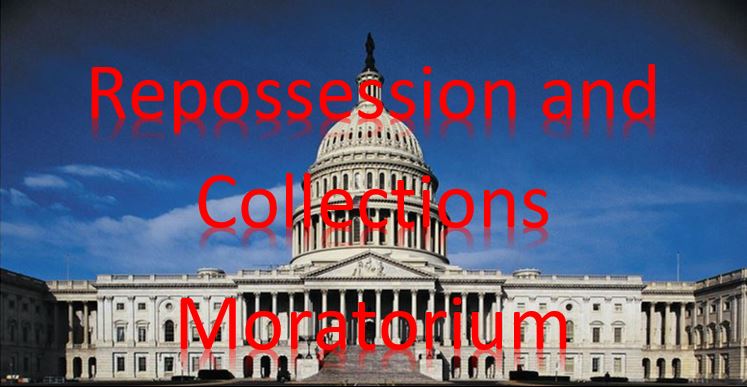
CUCollector.com is attempting to receive a copy of a ten-page memo shared with House Democrat members by the Financial Services Committee on
Tuesday, which CUTimes and CUToday reported that they had received a copy of. Within this memo, they outline the additional proposals that they desire to be part of the next phase of stimulus spending and overnight, revisions to S.3565 were made that mirror these proposals. These include; a moratorium of foreclosures, repossession and prohibits debt collector from taking any adverse action against a borrower during the pandemic and an additional 120 days after.
According to outside reports, the memo states “The CARES Act included several Committee priorities, but Democrats made clear that it was only a down payment on the relief that is needed to fully address the historic negative health and economic effects of COVID-19,” the staff said in a 10-page memo.
Amongst the Democratic committee proposals included in the memo:
- Waive overdraft fees and other costly fees at financial institutions.
- Require banks and credit unions to cash federal stimulus checks free of charge.
- Prohibit financial regulators from issuing rules unless they are related to the economic crisis.
- Broaden the foreclosure moratorium, repossession ban and forbearance to include all homeowners and multifamily property owners.
- Establish a $35 billion fund to support low-income homeowners who need assistance.
- Authorize about $100 billion to invest in housing infrastructure, which would be used to build or preserve some 1.8 million affordable homes.
- Extend the so-called GSE Qualified Mortgage Patch until January 2022 to avoid a complex rulemaking process.
- Prohibit debt collectors from taking any adverse action against a borrower during the pandemic and for 120 days afterward.
- Require the Treasury Department to establish a lending program for nonprofits and mid-size companies.
- Direct the Federal Reserve to provide zero-percent interest loans to community financial institutions to support small businesses.
- Provide the Federal Home Loan Banks with enhanced authority to serve community financial institutions.
While this situation is fluid, the original senate bill S. 3565 followed by the recent White Paper by Richard Cordray, these two collections and repossessions moratoriums do appear to be rising in popularity amongst the Democratic party members.
Overnight, changes to the text of S. 3565 were made that tie in with the 120 day moratorium and clearly define the “covered period” and what a “debt collector is.”
“(2) The term ‘covered period’—
“(A) means—
“(i) the period beginning on the date that is 1 day after the date on which a major disaster is declared by the President under section 401 of the Robert T. Stafford Disaster Relief and Emergency Assistance Act (42 U.S.C. 5170), where assistance is authorized under section 408 of that Act (42 U.S.C. 5174), and ending 120 days after the end of the incident period for that disaster; or
“(ii) the period beginning on the date that is 1 day after the date on which an emergency involving Federal primary responsibility is determined to exist by the President under section 501(b) of the Robert T. Stafford Disaster Relief and Emergency Assistance Act (42 U.S.C. 5191(b)) that simultaneously covers all States for a single incident, event, or emergency, and ending 120 days after the end of the incident period for that emergency; and
“(B) includes the period beginning on the date that is 1 day after the date of enactment of this Act and ending on the date that is 120 days after the end of the incident period with respect to the emergency involving Federal primary responsibility determined to exist by the President under the section 501(b) of the Robert T. Stafford Disaster Relief and Emergency Assistance Act (42 U.S.C. 5191(b)) with respect to the coronavirus disease 2019 (COVID–19).
“(5) The term ‘debt collector’ means a creditor, and any person or entity that engages in the collection of debt, including the Federal Government and a State government, irrespective of whether the debt is allegedly owed to or assigned to that person or to the entity.
One aspect of S.3565 that may have been changed or previously gone unnoticed, is a section that apparently eradicates deficiency balances incurred by and post event repossession. In short, removed all deficiency balance obligations.
“(5) SCOPE OF JUST COMPENSATION.—In an action under this subsection, any assistance or benefit provided directly or indirectly to the any creditor or debt collector under any legislation enacted in response to a major disaster or emergency shall be deemed to be compensation for the property taken, even if such assistance or benefit is not specifically provided as compensation for property taken by this section.
While these measures are well meaning, they fail to address the livelihood of the hundreds of thousands of people in the repossession and collections industries and service providers to these industries. An interruption in collections and repossession activity will without a doubt, trigger a tightening in automotive and credit lending that will trickle up into the automobile sales and manufacture industries and stifle future economic growth that will sorely be needed in the post pandemic recovery.
We urge you to contact your state representatives and voice your opposition to these measures. RSIG recently issued a call for such actions and has a blanket letter that you can access here. Please ACT NOW!










